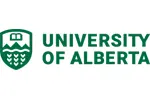

Award: Master of Arts
The Department of Modern Languages and Cultural Studies offers Master of Arts and Doctor of Philosophy degrees. Our graduate programs produce specialists working in the specialization disciplines of Applied Linguistics, Media and Cultural Studies, Translation Studies and Transnational and Comparative Literatures.
Applied Linguistics
This specialization involves research in one of the following areas: second language acquisition and pedagogy, discourse studies, sociolinguistics, and multilingualism.
Media and Cultural Studies
This specialization involves the analysis of different media using theories of cultural studies. Areas of emphasis include: folklore studies, gender and sexuality studies, native studies, popular culture, game and design studies, and urban studies.
Translation Studies
This specialization involves research in one or more of the following: cultural translation, history of translation, literary translation, multilingual translation, translation theory and criticism.
Transnational and Comparative Literatures
This specialization involves the study of global literature, criticism, theory, and their intersections with language, art, and culture, either within a single language or across languages.
The Department of Modern Languages and Cultural Studies emphasizes multidisciplinary and cross-linguistic approaches, but also has the capacity to deliver individualized programs in specific fields and languages. All work and research in MLCS is based within a multilingual and global context.
For more information, see the Modern Languages and Cultural Studies website.
Entrance Requirements
The Department's minimum admission requirement for the MA program is an undergraduate degree in a related field or the equivalent with an admission GPA of at least 3.3 on the 4-point scale from the University of Alberta, or an equivalent qualification and standing from a recognized institution. The admission GPA will be calculated on the last 60 units of graded coursework completed, or on the equivalent of the last two years of full-time graded coursework.
The minimum admission requirement for the PhD program is an MA degree or the equivalent, related to the area of specialization with an admission GPA of at least 3.3 on the 4-point scale from the University of Alberta, or an equivalent qualification and standing from a recognized institution. The admission GPA will be calculated on the last 60 of graded coursework completed, or on the equivalent of the last two years of full-time graded coursework.
Graduate students entering a degree program in MLCS are required to have at least one language other than English, as assessed by the Graduate Committee.
Where applicable, applicants must provide proof of English Language Proficiency (refer to English Language Requirement). Any one of the following is acceptable:
Applicants are also required to submit the following
For information on how to apply see Admissions on the Department website.
The application deadline is January 15 for programs beginning the following September.
Learn more about Modern Languages and Cultural Studies, MA - at University of Alberta
Visit course webpageContact University of Alberta to find course entry requirements.
The University of Alberta offers a wide ranges of scholarships to international students. You will be evaluated for these scholarships when you apply for admission. Your eligibility will be based on your high school admission average at the time of your admission offer. We'll assess you for a match to the following three scholarships. If you are eligible for an admission-based scholarship we will contact you directly!
You can also apply for scholarships based on your application, including the President’s International Distinction Scholarship, awarded annually to 25 international students, worth up to CAN $120,000.
To find out more about scholarships click here.
There are 596 other courses listed from University of Alberta. A selection of these are displayed below:
University of Alberta main campus location is shown on the map below:
Find out more about studying in Canada